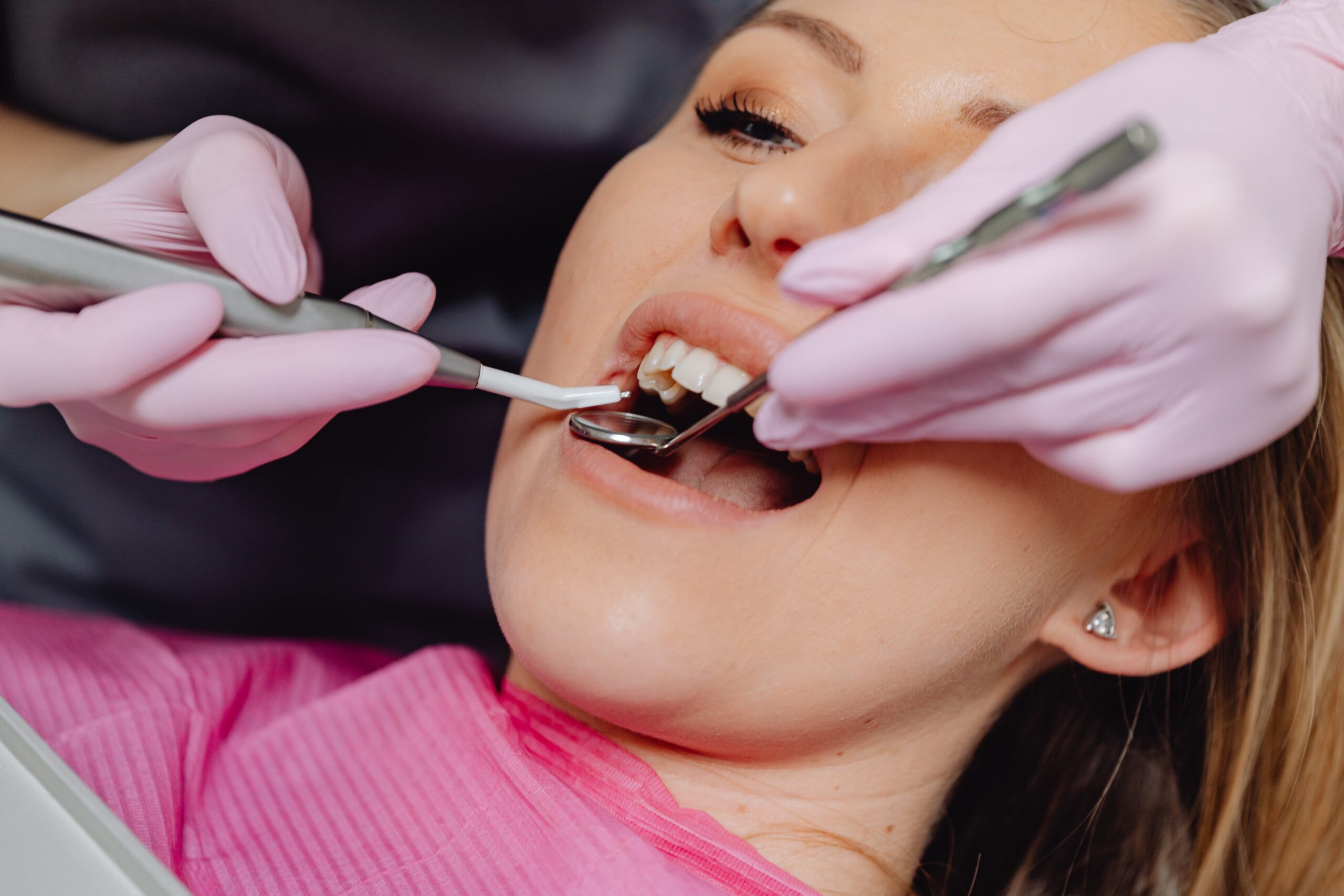Preventative dentistry helps maintain oral health by identifying potential problems, such as inflamed or receding gums, before they become more serious. It enables you to stay informed about your dental health, receive timely care, and develop habits that promote long-term oral hygiene. Here are some ways preventative practices can help detect issues early:
Oral Examinations
A thorough oral examination is one of the foundational steps in preventative dentistry. During these exams, dental professionals assess the overall health of your teeth, gums, and mouth. They evaluate everything from alignment issues to early signs of cavities or gum disease. Dentists may look for warning signs of systemic health issues linked to oral health, such as diabetes and heart disease. Regular oral exams allow professionals to monitor changes over time, helping them identify and address small issues before they escalate.
These exams can also include screenings for oral cancer. Dentists may check for abnormal patches, sores, lumps, or discoloration in the soft tissues of the mouth, throat, lips, and tongue. Detecting oral cancer in its early stages improves the chances of successful treatment and recovery.
Dental X-Rays
Not all dental problems are visible during a standard exam, which is why dental X-rays are a key part of preventative care. These images provide a detailed look beneath the surface, helping dentists detect issues such as early-stage cavities, bone loss, infections, and impacted teeth. Periodic X-rays can support more accurate diagnoses, providing insights that a visual exam may not capture. When combined with regular check-ups, X-rays help safeguard oral health by catching complications early.
Teeth Cleanings
Plaque and tartar buildup pose significant risks to dental health and can lead to cavities or gum disease. Professional teeth cleanings remove this buildup, even in areas that are difficult to reach with brushing and flossing alone. They also allow dental hygienists to identify signs of trouble, such as inflamed gums or early decay. Scheduling regular cleanings helps maintain a healthy oral environment while reducing the risk of more severe issues over time.
Patient Education
Maintaining proper hygiene practices at home can help prevent dental issues such as tooth decay and gum disease. During dental visits, professionals offer guidance on effective brushing, flossing, and other habits to protect your teeth. This education allows you to make small but consistent changes to your daily routine, such as using fluoride toothpaste and replacing your toothbrush regularly.
Tooth Alignment Monitoring
Misaligned teeth can lead to challenges with chewing, speaking, and maintaining proper oral hygiene. They may also increase the risk of cavities, gum disease, and jaw discomfort or strain. Regular monitoring of tooth alignment enables you and your dentist to identify and address potential problems early. This is especially beneficial for growing children. Early intervention with braces or aligners can guide teeth into their proper positions, promoting better oral health and function in the long term.
Maintain Your Smile With Preventative Dentistry
Preventative dentistry helps protect your oral health and detect problems early, which may minimize future discomfort and lengthy treatments. Through regular check-ups, professional cleanings, and personalized education, you can maintain a healthy, vibrant smile. Schedule your dental check-up today to monitor and protect your oral health.
- Zirconia Cap Price: Estimated Cost & Its Long-Term Benefits
- FREHF – The Revolutionary Future Of Human-Centered Technology!
- Adsy.Pw/Hb3 – Boost Your SEO And Drive More Traffic!
- Fitness Based Vacations By Timeshealthmage.com!
- TimesHealthMag Tips For Improving Sleep Quality – Expert Advice For Better Rest!


Leave a Reply